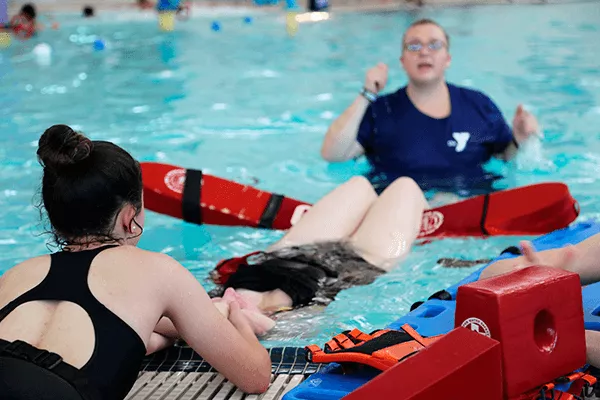In the world of aquatics, lifeguards play an indispensable role in ensuring the safety of swimmers and beachgoers. However, maintaining that lifesaving ability is just as crucial. Lifeguard recertification classes are essential for keeping skills sharp and certifications current. With the convenience of online learning offered by the American Lifeguard Association (ALA), you might wonder: when is the best time to take these recertification classes? This article explores various factors to help you determine the optimal time for lifeguard recertification, ensuring you are always prepared to save lives.
Understanding Lifeguard Recertification
Before diving into the timing of Lifeguard recertification classes online, it’s essential to understand what it entails. Lifeguard certification generally lasts for two years, after which lifeguards must complete a recertification course to renew their credentials. The ALA offers a comprehensive online recertification program that covers critical areas such as:
- CPR and First Aid: Essential for responding to emergencies.
- Lifeguard Skills: Including rescue techniques and surveillance strategies.
- Aquatic Environment: Understanding water safety and hazards.
The ALA’s online classes provide flexibility, allowing lifeguards to learn at their own pace while ensuring they receive the most current training and information.
Factors to Consider When Choosing the Timing
1. Personal Schedule and Availability
One of the most significant advantages of online recertification classes is the flexibility they offer. Consider your personal schedule:
- Work Commitments: If you have a busy work schedule, choose a time when you can dedicate a few uninterrupted hours to the course.
- Seasonal Work: If you work as a lifeguard during the summer, it’s wise to complete your recertification before the season starts, ensuring you’re prepared for the influx of swimmers.
2. Pool and Beach Schedules
Many lifeguards work at public pools or beaches with specific operating hours. Be mindful of these schedules when planning your recertification:
- Off-Peak Seasons: Consider taking the course during the off-season when pools and beaches are closed or have reduced hours. This way, you can focus entirely on your training without the pressure of your work commitments.
3. Recertification Expiration Dates
Every lifeguard certification comes with an expiration date, usually set two years from the date of initial certification or the last recertification. Keep track of your expiration date to avoid a lapse in your certification:
- Plan Ahead: Aim to complete your recertification at least a month before your expiration date. This buffer allows for unexpected delays or issues, ensuring you remain certified without interruption.
4. Emergency Preparedness
Lifeguards must always be prepared for emergencies. Completing your recertification ahead of time means you’ll be ready to handle any situation that arises:
- Stay Fresh: Engaging in recertification classes when your skills are still somewhat fresh in your mind can make it easier to absorb the material. If you wait too long, you may need to relearn skills that could have been maintained through regular practice.
5. Peer Support and Group Classes
Sometimes, taking a course alongside fellow lifeguards can provide additional motivation and support:
- Organized Group Recertifications: Coordinate with your colleagues to enroll in online recertification classes together. This camaraderie can create a supportive learning environment and foster teamwork skills that are vital for emergency response.
The Benefits of Online Lifeguard Recertification
Choosing online lifeguard recertification with the American Lifeguard Association comes with several advantages:
1. Convenience
Online courses allow you to learn at your own pace from the comfort of your home, eliminating the need to travel to a physical location.
2. Accessibility
With online classes, you can access the material anytime, anywhere. This flexibility means you can fit your training into your busy life, whether it’s early morning or late at night.
3. Up-to-Date Training
The ALA regularly updates its course material to ensure that lifeguards receive the latest information and techniques. By taking your recertification online, you can rest assured that you’re learning the most current practices.
4. Cost-Effectiveness
Online classes often come at a lower cost than in-person sessions, making them a budget-friendly option for many lifeguards. The ALA offers competitive pricing without compromising the quality of the training.
Recommended Timing for Online Lifeguard Recertification
After considering all these factors, you might still wonder: when is the best time to enroll in an online recertification class? Here are some recommendations:
1. Early Spring or Late Winter
This time frame is ideal for those working at outdoor pools or beaches. Completing your recertification before the season begins ensures you are ready to go when the crowds start to arrive.
2. Late Summer or Early Fall
For lifeguards who work primarily during the summer, taking the course at the end of the season can refresh your skills and prepare you for any off-season opportunities.
3. Periods of Low Workload
If your job offers predictable downtime, such as holidays or school breaks, use this time to complete your recertification without feeling rushed or distracted.
4. After New Year’s Resolutions
January is a popular month for setting goals. If you aim to improve your professional skills as part of your New Year’s resolutions, consider prioritizing your lifeguard recertification during this time.
Conclusion
The importance of timely lifeguard recertification cannot be overstated. With the American Lifeguard Association offering convenient online courses, you can easily fit recertification into your schedule. Whether you choose to recertify in early spring or late summer, planning ahead and being mindful of your personal and professional obligations will help ensure that you remain certified and ready to act in emergency situations.
By staying current with your training, you not only fulfill the requirements of your certification but also enhance your skills and confidence as a lifeguard.Also Read About For more information clicke here.






